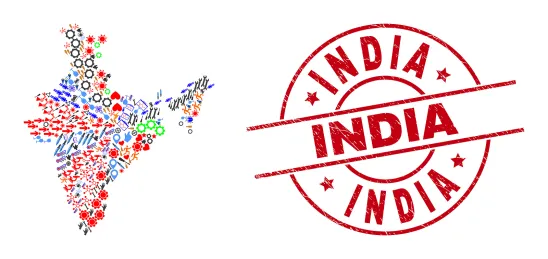INTRODUCTION
The Securities and Exchange Board of India (“SEBI”) recently proposed certain amendments relaxing the lock-in requirements in relation to promoter shareholding and shareholding of non-promoters, under the SEBI (Issue of Capital and Disclosure Requirements) Regulations, 2018. The proposed amendments are in furtherance of SEBI’s board meeting dated August 6, 20211 (“SEBI Board Meeting”), and SEBI consultation paper dated May 11, 20212, which contemplated in detail the need to bring about such amendments. The proposed amendments have been notified and are in effect from August 13, 2021. A summary of the proposed amendments introduced by the SEBI Board Meeting along with our analysis is provided below.
PROPOSED AMENDMENTS
SEBI has approved to relax the lock-in requirements in relation to promoter shareholding to the extent of 20% of the post issue capital (the “Minimum Promoter Contribution”), such that the lock-in has now been reduced to a period of 18 (Eighteen) months from the date of allotment in the initial public offering (“IPO”)/ further public offering, instead of the erstwhile lock-in requirement of a period of 3 (Three) years, only in the following cases:
-
If the object of the issue involves only offer for sale;
-
If the object of the issue involves only raising of funds for other than for capital expenditure for a project (i.e. end use of more than 50% of the fresh issue should not be for capital expenditure for a project); or
-
In case of combined offering (fresh issue + offer for sale), the object of the issue involves financing for other than capital expenditure for a project (i.e. end use of more than 50% of the fresh issue should not be for capital expenditure for a project excluding the offer for sale portion).
Further, in all the above-mentioned cases, the promoter shareholding in excess of the Minimum Promoter Contribution will be locked-in for a period of 6 (Six) months, instead of the erstwhile lock-in requirement of a period of 1 (One) year.
With respect to the lock-in pertaining to the pre-IPO securities held by non-promoter shareholders, the lock-in requirement has been reduced to a period of 6 (Six) months as against the 1 (One) year lock-in requirement earlier.
RATIONALE FOR THE PROPOSED AMENDMENTS
Historically, companies often raised public capital for project financing/ greenfield projects, due to which the 3 (Three) year lock-in period on the Minimum Promoter Contribution was considered a necessary requirement. Greenfield financing through IPOs has currently become non-existent, however, SEBI retains the position that in the event, more than 50% of the fresh issue funds are being raised for capital expenditure for a project, then in such a given scenario the erstwhile lock-in restrictions will continue to prevail.
The introduction of lock-in restrictions on the promoter shareholding was to ensure that the promoters demonstrate continuous ‘skin in the game’ and do not exit the company on receipt of the IPO proceeds. However, over a period of time, the traditional ownership structure of the Indian companies which was earlier dominated by promoters is now swiftly being replaced by institutional investors like private equity firms, alternate investment funds, etc., who stay invested in the company for a considerable number of years before the company goes public. Also, the companies now going public are well established with mature businesses and professional management unrelated to the promoter group. Further, there is more acceptance since last couple of years from private equity investors to be categorized as ‘promoter’ of the company going public and hence the proposed amendments would not only benefit these investors as non-promoters but also as promoters in such companies going public.
An analysis of data of companies that listed during the period between 2007 till 2015, reveals that, in many companies, promoters did not materially sell their shares even after the expiry of the lock-in period. Also, another analysis highlights that the aggregate shareholdings of promoters in the top 500 listed companies has gone down considerably to around 50% in 2018. Whereas, the shareholding of institutional investors in the top 500 listed companies has increased from 25% in 2009 to 34% in 20183. Owing to the aforementioned factors, the promoter’s ‘skin in the game’ rationale seems to be losing its relevance as India Inc gets more institutionalized.
CONCLUSION
The relaxations have been introduced by SEBI at a time when the Indian capital markets have witnessed several companies going public. There is a mad rush amongst Indian companies to take advantage of the current capital markets boom in India. This move of SEBI will further encourage more companies to pursue the listing of its shares. The reduction in the lock-in restrictions for non-promoters, keeping in mind the change in the ownership structure of the Indian companies with private equity firms and the institutional investors holding significant shareholding in the companies, will further boost the sentiment of such non-promoter shareholders. Further, the relaxations in the lock-in restrictions will provide a comfort zone to the promoters who are often in a dilemma of taking the company public, as the reduction in the lock-in period will allow them an earlier exit, if so desired by such promoters.
1 SEBI Press Release dated August 6, 2021
2 SEBI Consultation Paper dated May 11, 2021
3 OECD (2020), Ownership structure of listed companies in India




 />i
/>i

